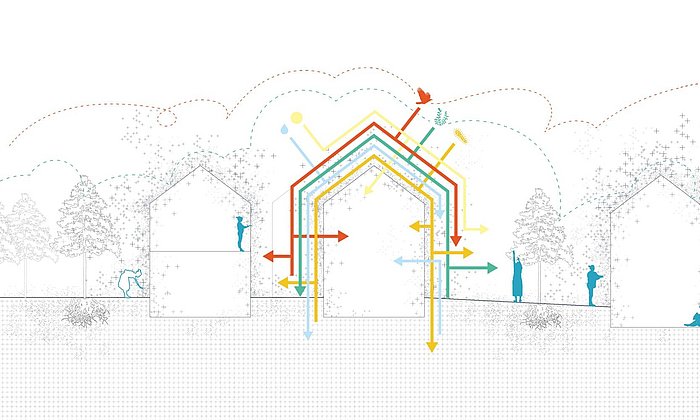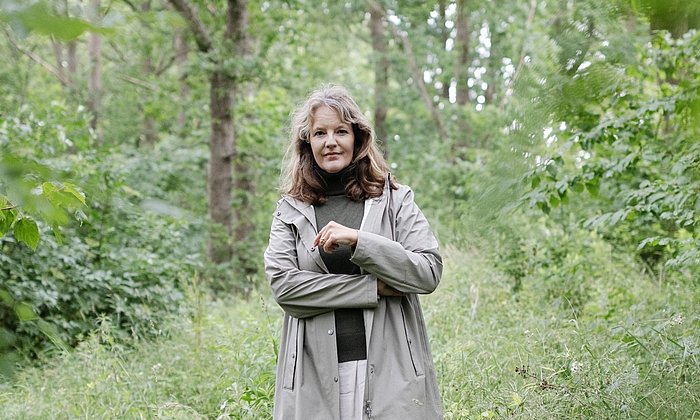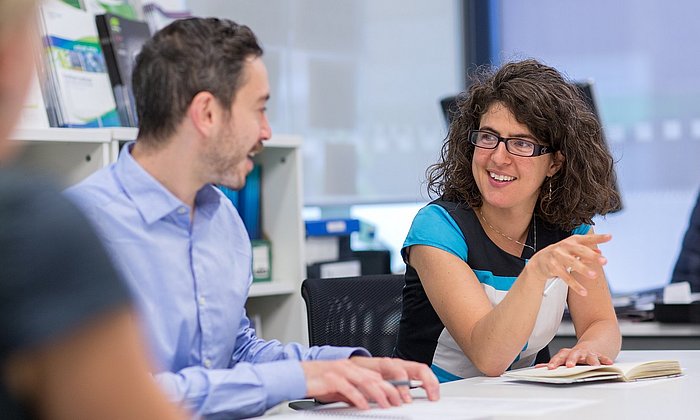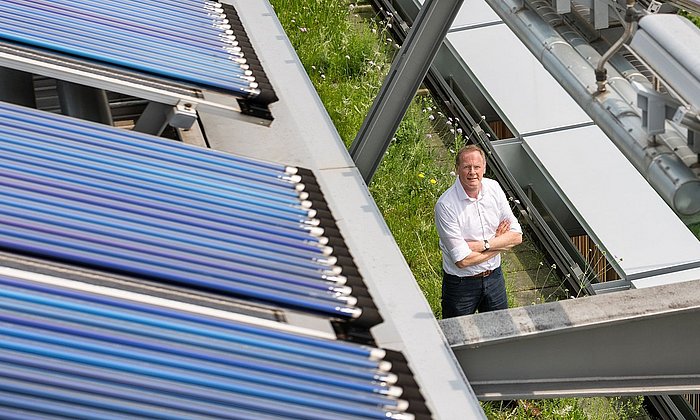Global discourse series “One Topic, One Loop“: Sarah Billington
Sustainability and inclusivity must go hand in hand
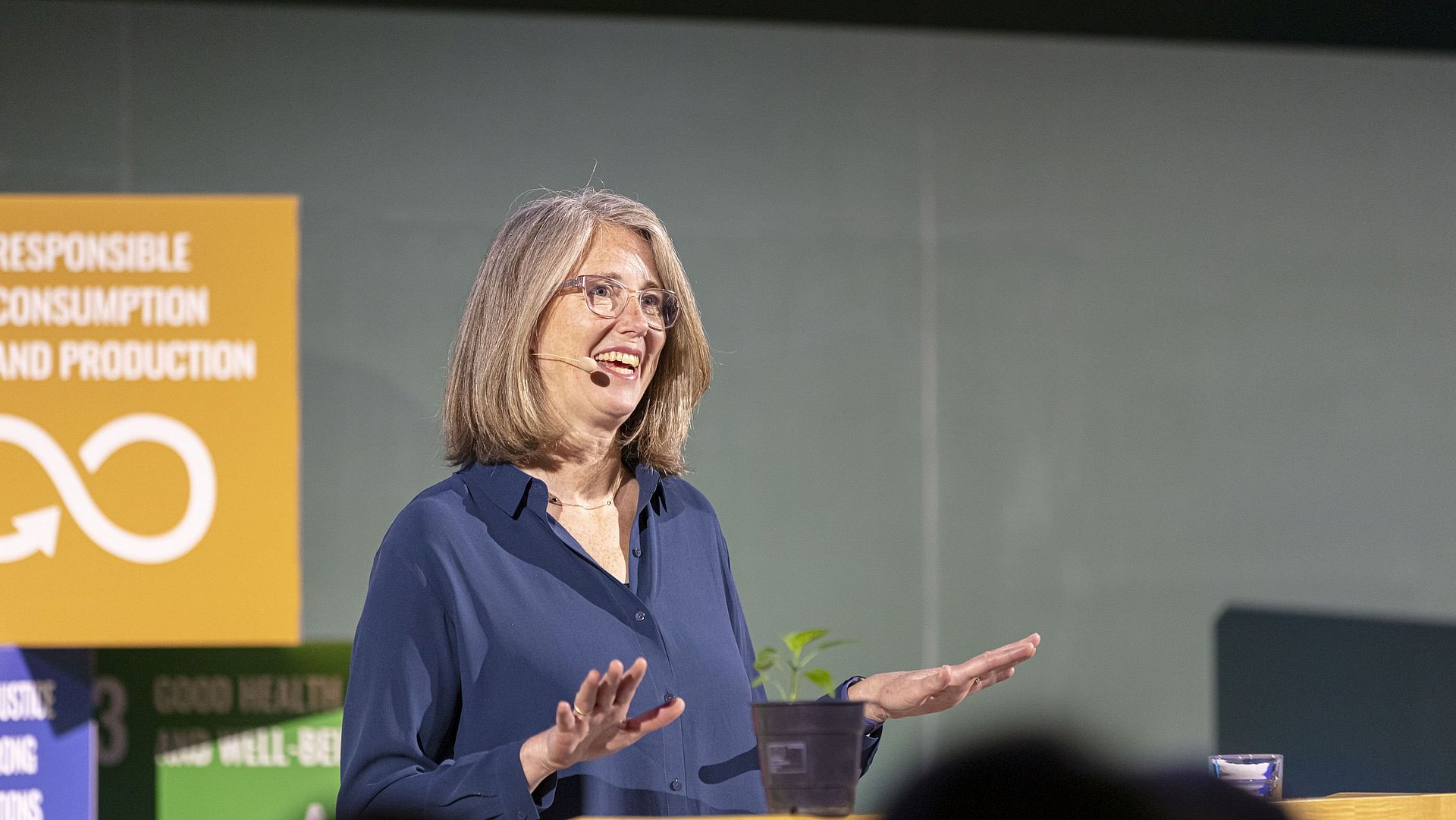
As a member of the Stanford community for over 20 years, I've witnessed firsthand the power of an inclusive, creative environment. Recently, Stanford has made an enormous commitment to sustainability, further enhancing this environment. In my experience, for universities to have an inclusive, creative environment for sustainability activities requires three things: a vibrant, ecosystem of diverse academic units, cross-cutting structures and programs focused on large, complex challenges, and an administration that clears the path to let faculty and students flourish. Our newest school, the Stanford Doerr School of Sustainability aims to embody all three.
At Stanford, we owe much of our creative and inclusive environment to being part of a vibrant, diverse ecosystem that provides world-class liberal arts and professional education across seven schools: Humanities & Sciences, Engineering, Sustainability, Medicine, Law, Business, and Education. Our schools focus on key academic functions: hiring and promoting faculty, admitting students, developing curricula, and granting degrees. This concentration of diverse thought, knowledge, and skills on one campus inspires creativity. However, this diversity can only flourish in an inclusive environment.
Campus-wide institutes and initiatives
Inclusivity can be fostered through campus-wide Institutes and Accelerators that support interdisciplinary collaborations. At Stanford we have many such entities focusing on complex, challenges that cross traditional boundaries in areas like the environment, energy, and human-centered AI. They provide a physical and intellectual intersection between schools and disciplines, fostering “all-hands” activities and inviting broad participation from the university community and external stakeholders. Accelerators take institute-type engagement further by actively partnering faculty and external entities to develop and scale solutions to pressing societal issues in fields such as education, health, and sustainability.
Making@Stanford provides interdisciplinary makerspaces across campus, enabling making courses in every discipline from mechanical engineering to theater to architectural design and supporting projects like a "pulse of the planet" garage for community-based environmental monitoring. Entrepreneurial programs such as the Stanford Technology Ventures Program, similar to TUM's UnternehmerTUM empower students to create and scale responsible innovations, exploring solutions ranging from electrifying remote construction fleets to establishing circular economies for medical supplies.
Faculty and students can do their best, most impactful work in these crosscutting units and programs when the administration “clears the path” and provides easy access to needed resources. For instance, our flexible degree programs allow undergraduate students to pursue diverse courses within and outside their majors. Graduate engineering students can take 20% of courses outside engineering, such as "Leading Organizational Change for Sustainability" or "Integrative Design and Entrepreneurship for Sustainability." Support for Making@Stanford is another example of “clearing the path” for the faculty vision to grow into a vibrant, campus-wide initiative.
A new school for the future
The recently founded Stanford Doerr School of Sustainability embodies all these principles. The school has a vibrant ecosystem of departments spanning engineering, natural science, social science, and humanities, and it houses sustainability-focused, campus-wide Institutes and an Accelerator. Inclusivity was intentional from the start – the formation of the school was a multi-year, “all hands” effort. The design process included two Deliberative Polling® events engaging hundreds of students and faculty from across the University, and the invitation to join was open to all.
The Doerr School reimagines academia by facilitating collaborations among faculty and students focused on sustainability and climate impact with diverse research approaches. Some scholars conduct basic research on how toxic metals cycle and interact in groundwater, while others study the health impact of novel treatment technologies at water collection points, and others focus on developing and testing leasing models for water technologies. While encouraging a shared direction, the school preserves individual creativity and academic freedom.
Though only two years old, the Doerr School blends established and new departments to address sustainability challenges. Its success depends on clearing the path - empowering faculty to set strategic directions and innovate in research and education and enabling students to explore sustainability across disciplines, fostering their growth as knowledgable, passionate, and ethical citizens. This approach positions us to work together and engage globally in creating innovative solutions for sustainability.
At the end of the series, I would like to hand the ball back to Werner Lang at TUM. What do you remember most about our global dialogue?
Four people from four different countries and four different universities discuss a current topic in research and teaching. The series "One Topic, One Loop" begins with an initial question to which the first person responds and asks the next person another question on the same topic. The series ends with the first person answering the last question and reflecting on all previous answers. The topic of the first season was Large Language Models and their impact on research and teaching. In the second series, we look at how universities can integrate sustainability into their infrastructure and daily activities.
Our authors are: Werner Lang, Vice President for Sustainable Transformation, Alyssa Gilbert, Director of Innovation, Grantham Institute for Climate Change, Imperial London, Christine Nellemann, Dean for Sustainability, Technical University of Denmark and Sarah Billington, UPS Foundation Professor and Senior Fellow at the Woods Institute for the Environment at Stanford University.
- Sarah Billington is UPS Foundation Professor and Senior Fellow at the Stanford Woods Institute for the Environment at Stanford University and was keynote speaker at the TUM Sustainability Day 2024.
- Sustainability at Stanford University
- Sustainability at TUM
